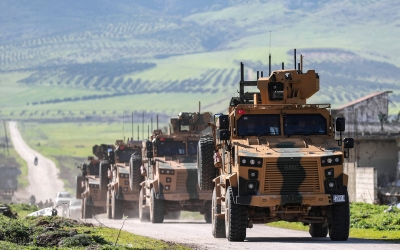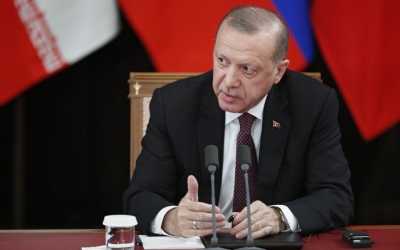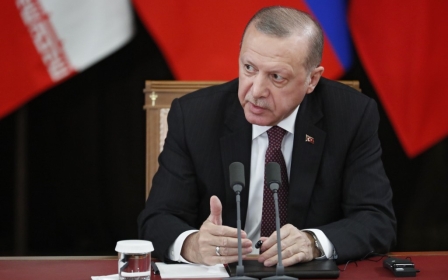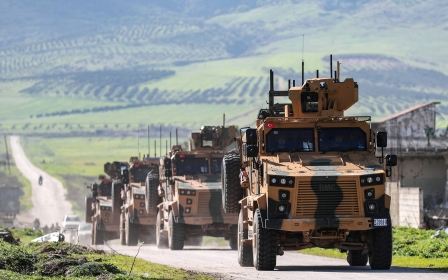Pentagon chief says any Turkish incursion east of Euphrates 'unacceptable'
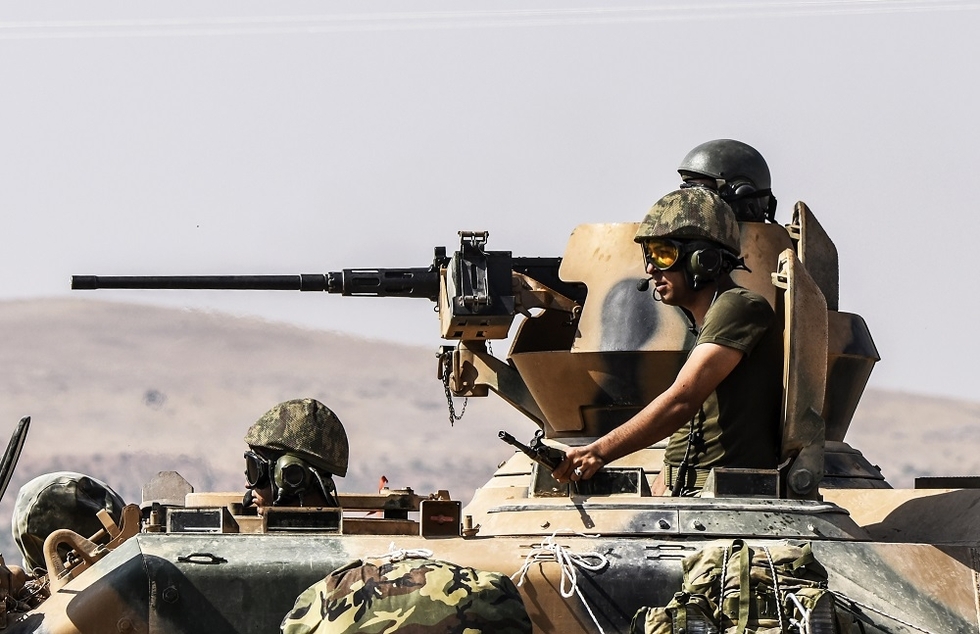
US Defence Secretary Mark Esper said on Tuesday that any Turkish operation into northeastern Syria would be "unacceptable" and that the United States would prevent unilateral incursions.
Turkish President Recep Tayyip Erdogan said on Sunday that Turkey, which already has a foothold in north Syria, would be carrying out a military operation in the Kurdish-controlled area east of the Euphrates River.
"Clearly we believe any unilateral action by them [Turkey] would be unacceptable," Esper told reporters travelling with him to Japan.
"What we're going to do is prevent unilateral incursions that would upset, again, these mutual interests... the United States, Turkey and the SDF [Syrian Democratic Forces militia] share with regard to northern Syria," Esper said.
With US backing the SDF, which includes the Kurdish YPG militia that Turkey considers a terrorist organisation, has over the last four years taken control of much of northeastern Syria from the Islamic State (IS) militant group.
New MEE newsletter: Jerusalem Dispatch
Sign up to get the latest insights and analysis on Israel-Palestine, alongside Turkey Unpacked and other MEE newsletters
Esper said the US did not have any "ambition" to abandon the SDF, but stopped short of guaranteeing that Washington would protect them in case of a Turkish operation.
He suggested that any such operation could affect the SDF's focus on ensuring IS did not retake the territory it once held in Syria and the ability of the US-backed forces to hold the thousands of alleged IS fighters in detention.
Erdogan said both Russia and the US had been told of the planned operation, but did not say when it would begin.
It would mark the third Turkish incursion into Syria in as many years.
'Safe zone' talks
Ties between the two NATO allies have been strained over a host of issues, including the US's removal of Turkey from the F-35 fighter jet programme after Ankara bought and took delivery of Russian S-400 missile defences that Washington sees as a threat.
Turkey has in the past warned of carrying out military operations east of the river, but put them on hold after agreeing with the US to create a "safe zone" inside Syria's northeastern border with Turkey that would be cleared of the YPG.
A team from the Pentagon arrived in Turkey on Monday to speak with Turkish officials about the issue and Esper said he was hopeful that an agreement on the safe zone could be reached with Ankara.
A Turkish official told Middle East Eye deliberations would continue until Tuesday.
Sources close to the Turkish government expect Ankara to refuse the latest US proposal if it does not adhere to certain red lines, such as the depth and levels of control in the zone.
Rebels ready to join operation
Syrian rebel commanders said on Monday that they were ready to join Turkish troops in an offensive against the SDF.
The spokesman for the National Army, a Turkey-backed rebel grouping, said a 14,000 strong force was ready to start a campaign against the YPG.
"There are over 14,000 fighters who are ready to engage in combat operations east of the Euphrates alongside Turkish forces," Major Youssef Hamoud told the Reuters news agency.
The rebel official did not set a date for the operation, while another opposition source said preparations were already underway as a Turkish army deployment gathered pace along the border in an operation expected to start from both Syrian and Turkish territory.
The SDF, which is affiliated with the Kurdish-led Autonomous Administration of North and East Syria, condemned Turkey's "growing threats" and urged western powers to act.
"We stand as one front with all our ethnic and religious components and will resist with all possible means in defence of security and stability," Abed Hamed al-Mihbash, the head of the council said in a statement.
"Turkey wants to destabilise the co-existence between the various groups of the Syrian people," he added.
Arab resentment
The Turkish-led campaign, which has for months been delayed due to resistance from Washington, is aimed at evicting YPG forces from a string of border towns in Raqqa and Hassakeh provinces.
Hundreds of thousands of refugees who fled during the conflict from these areas are now in Turkey and in the opposition-held northwest.
Tribal leaders and rights groups accuse the ruling Kurdish militia of preventing many Arabs from returning to their former homes which they say have been confiscated and demolished, a charge the SDF denies.
"The goal is to end the presence of the separatist terrorist group [YPG] and wreck their plan to change the demographic composition of the area and allow those displaced from all sects to go back to their home towns and villages," the rebel official Hamoud said.
Despite the removal of IS, resentment against SDF rule in eastern Syria has grown among the predominately Arab population, residents and tribal elders say, with many objecting to compulsory conscription of young men and discrimination at the leadership level.
Kurdish YPG leaders deny any discrimination and say they are seeking to redress decades of repression against their national rights by Syria's Arab Baath party.
Middle East Eye delivers independent and unrivalled coverage and analysis of the Middle East, North Africa and beyond. To learn more about republishing this content and the associated fees, please fill out this form. More about MEE can be found here.


